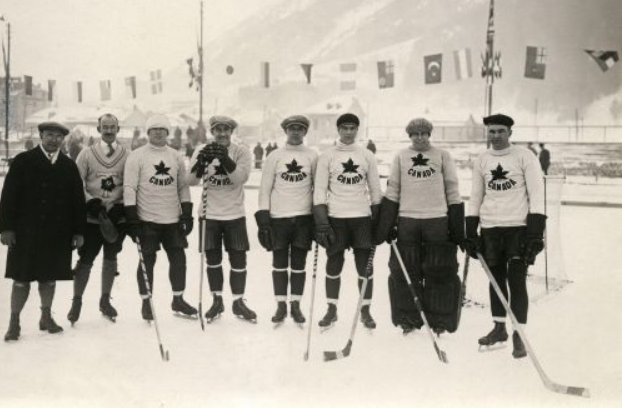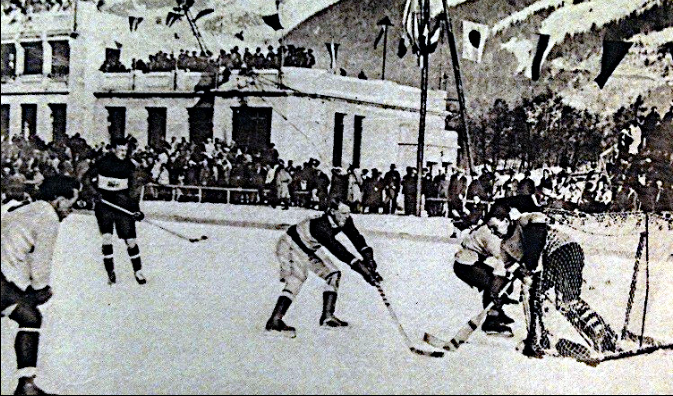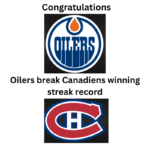The Birth of Winter Olympics:
The year 1924 marked the birth of the Winter Olympics, an event that would go on to capture the hearts of sports enthusiasts worldwide. Chamonix, a picturesque Alpine resort town in France, was chosen as the venue for the inaugural Winter Games. The event featured six sports: bobsleigh, curling, ice hockey, Nordic skiing, figure skating, and speed skating.
Canada, known for its prowess in winter sports, sent a formidable team to Chamonix. The contingent was composed of skilled athletes from various disciplines, ready to make their mark on the international stage. Among the most anticipated events was ice hockey, a sport where Canada had already established itself as a force to be reckoned with.
1924 Olympic Hockey:

The Toronto Granites were the ice hockey team that represented Canada at the 1924 Winter Olympics in Chamonix, France. They were the Allan Cup champions of 1922 and 1923 and thus were chosen as Canada’s Olympic representatives. They did not disappoint and despite playing on a larger outdoor rink surface with virtually no boards they destroyed all opposition.
Check out these charts showing team standings and game results for the first round. Canada scored 85 goals in the first round with zero goals against. These were the good old days for Canadian Olympic hockey. Beating Czechoslovakia 30-0 and Switzerland 33-0 would probably be pretty good for a goalies GAA and self-esteem.


In the second and final round the Canadians beat Great Britain by a score of 19-2 and in the final outscored the USA 6-1 to win the gold.


Despite the fact that these were the first Winter Olympics they were not the first Olympic Gold for Canada’s men’s hockey team. They had already won gold in the 1920 Summer Olympics (Represented by the Winnipeg Falcons). And yes, they did have hockey at the Summer games that year in Antwerp, Belgium.
Canada’s Olympic Men’s hockey teams would dominate the early years winning six out of seven gold medals from 1920 to 1952. From the 1950’s the Russians took over and would dominate Olympic hockey for years.
Hockey Tidbit: The Canadian Men’s Olympic hockey team would not win another gold medal after 1952 in Oslo until 2002 in Salt Lake City. Fifty years without a gold medal
Conclusion: From its humble beginnings in the early years of the Olympic movement to the present day, men’s Olympic hockey has evolved into a captivating saga of skill, determination, and international camaraderie. The sport, which witnessed teams like the Toronto Granites making history in 1924, has grown to become a symbol of national pride and unity for participating nations. Over the decades, we’ve seen legendary players, unforgettable moments, and fierce competitions that have left an indelible mark on the Olympic stage. From the icy rinks of Chamonix to the modern arenas hosting the latest battles, men’s Olympic hockey continues to be a thrilling chapter in the ongoing narrative of the Olympic Games, weaving tales of athleticism, sportsmanship, and the unifying power of competition.
Thanks for your time. Please leave comments and suggestions below.




